Enhancing Soft Skills for DevOps Engineers: Essential Non-Technical Skills to Thrive
Influencing Persuasion and Leadership
Leadership and Empowerment
Welcome to the DevOps SoftSkills series. I’m Michael Forrester, and in this lesson we'll dive into how leadership and empowerment drive high-performing DevOps teams. Effective DevOps leadership goes beyond task assignment—it’s about unblocking collaborators, fostering cross-functional synergy, and nurturing a culture of experimentation and continuous evolution.
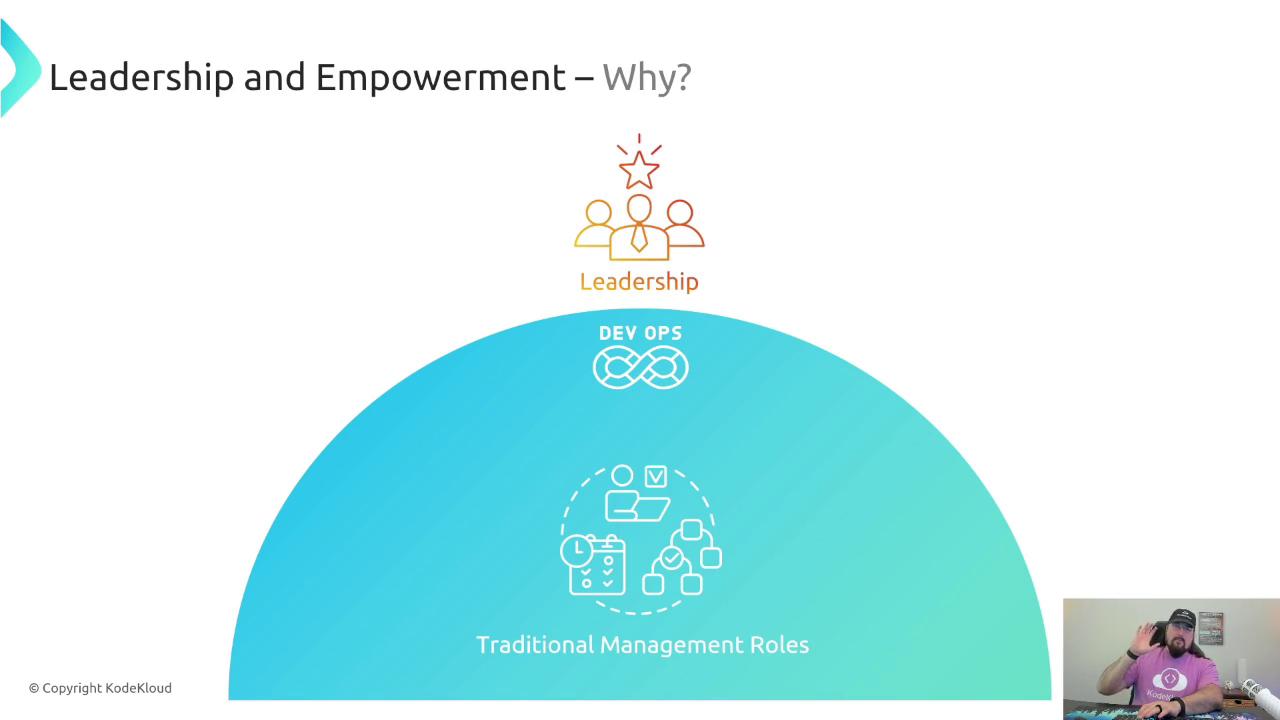
Key Principles of Effective Leadership
Below are the five pillars every DevOps leader should champion:
| Principle | Benefit |
|---|---|
| Clear Communication | Aligns vision and reduces confusion |
| Collaboration | Breaks down silos and builds shared context |
| Continuous Improvement | Keeps skills current and drives innovation |
| Experimentation | Enables safe-to-fail innovation cycles |
| Recognition | Motivates teams and reinforces positive culture |
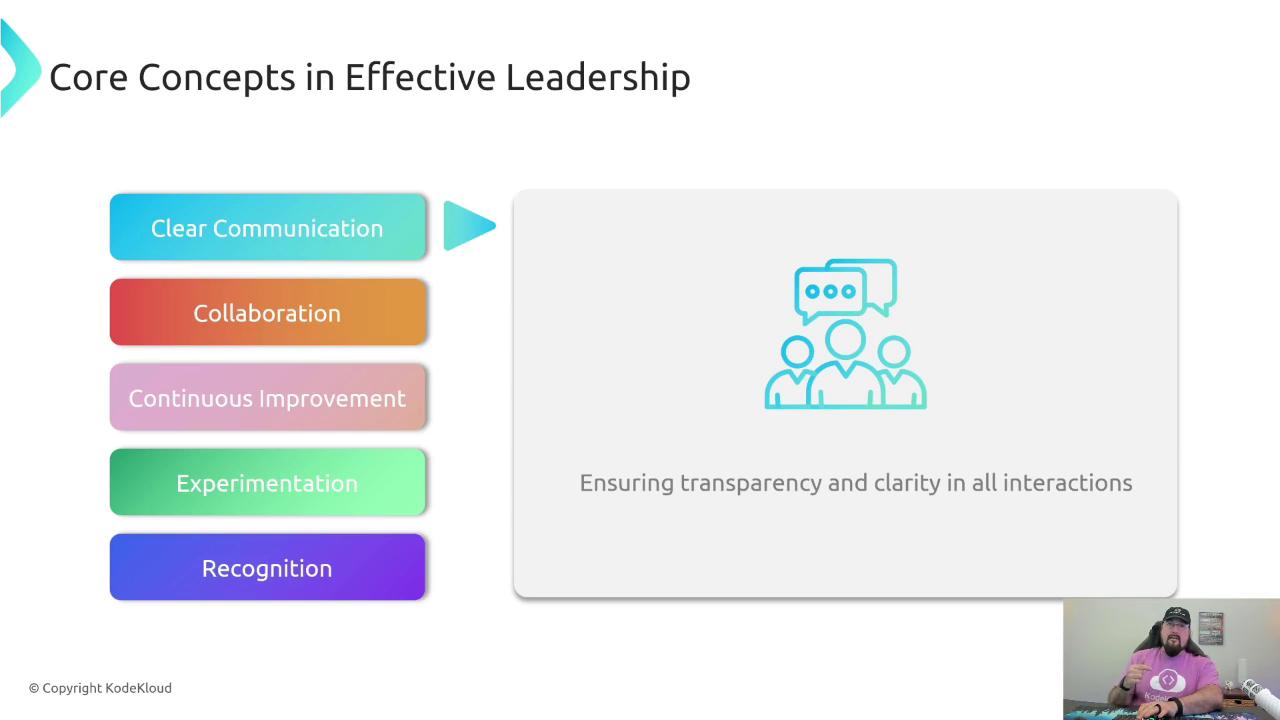
1. Clear Communication
Transparent, context-rich communication keeps everyone aligned with the company’s vision, mission, strategy, and values. When teams understand why security prioritization, automation, or cloud-first practices matter, they avoid redundant work and stay motivated.
- Signal intent with face-to-face conversations or video calls (camera on).
- Share concise, complete updates—instead of lengthy status meetings.
- Focus sessions on problem solving, planning, and creative exploration.
Note
Leaders model the seven Cs of communication: completeness, conciseness, clarity, concreteness, correctness, consideration, and courtesy.
Ineffective communication—poor listening or unclear messages—leads to confusion. Always choose the channel that best fits urgency and context.
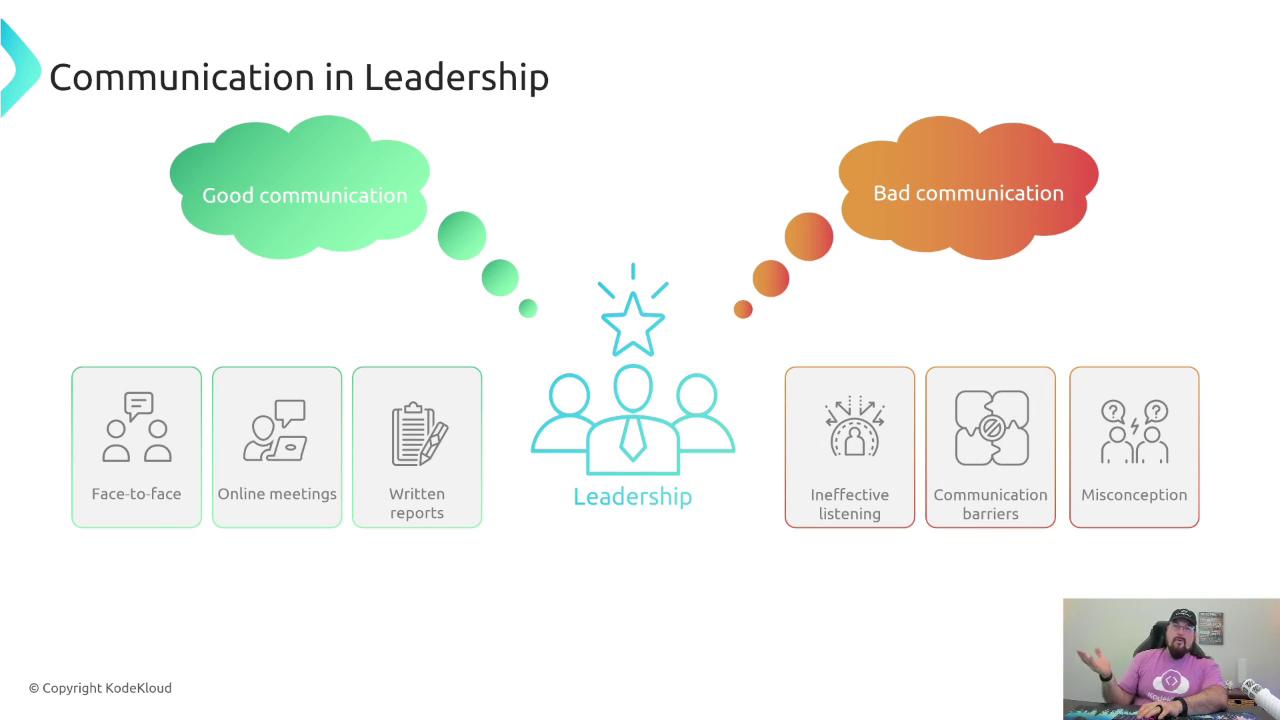
2. Collaboration and Teamwork
DevOps depends on cross-functional synergy. Developers, operations engineers, QA specialists, and DBAs must integrate seamlessly to deliver end-to-end value—be it a feature release, a new service, or a resilient CI/CD pipeline.
- Protect stable team membership—minimize ad-hoc rotations.
- Facilitate shared context with transparent dashboards and documentation.
- Break down silos by aligning incentives and goals.
Even healthy conflict can boost creativity. Leaders step in only to unblock and refocus, not to micromanage.
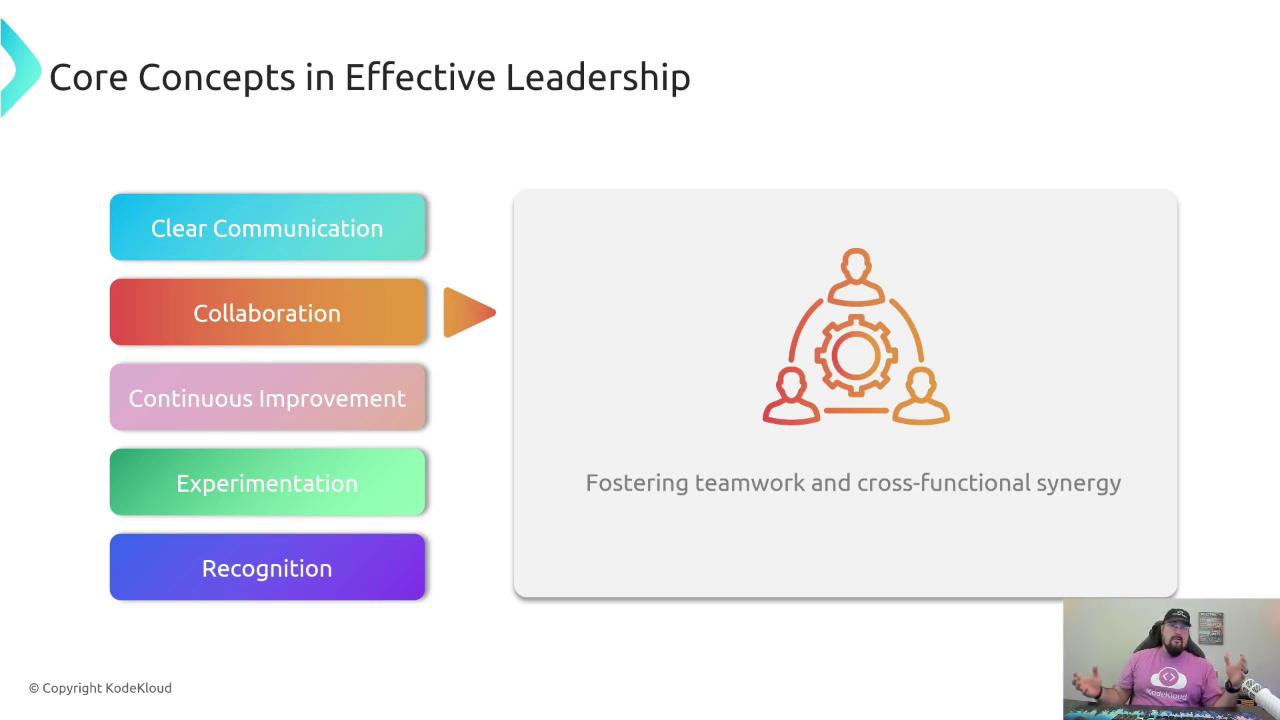
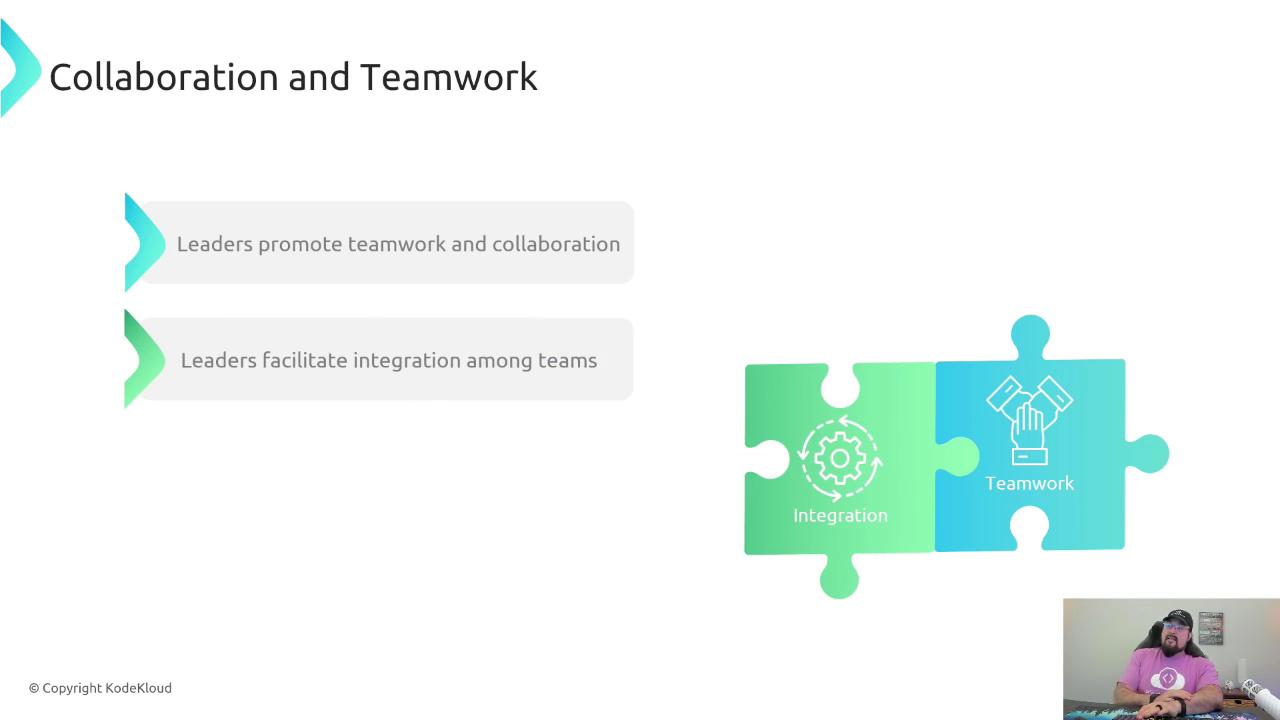
3. Continuous Improvement and Learning
Technology evolves rapidly. Leaders must foster an environment of perpetual growth:
- Provide curated learning resources: books, online courses.
- Sponsor certifications and hands-on workshops.
- Host knowledge-sharing sessions and mentorship programs.
Encourage mini-projects, peer-shadowing, and contributions to strategic planning. This culture safeguards against skill obsolescence.
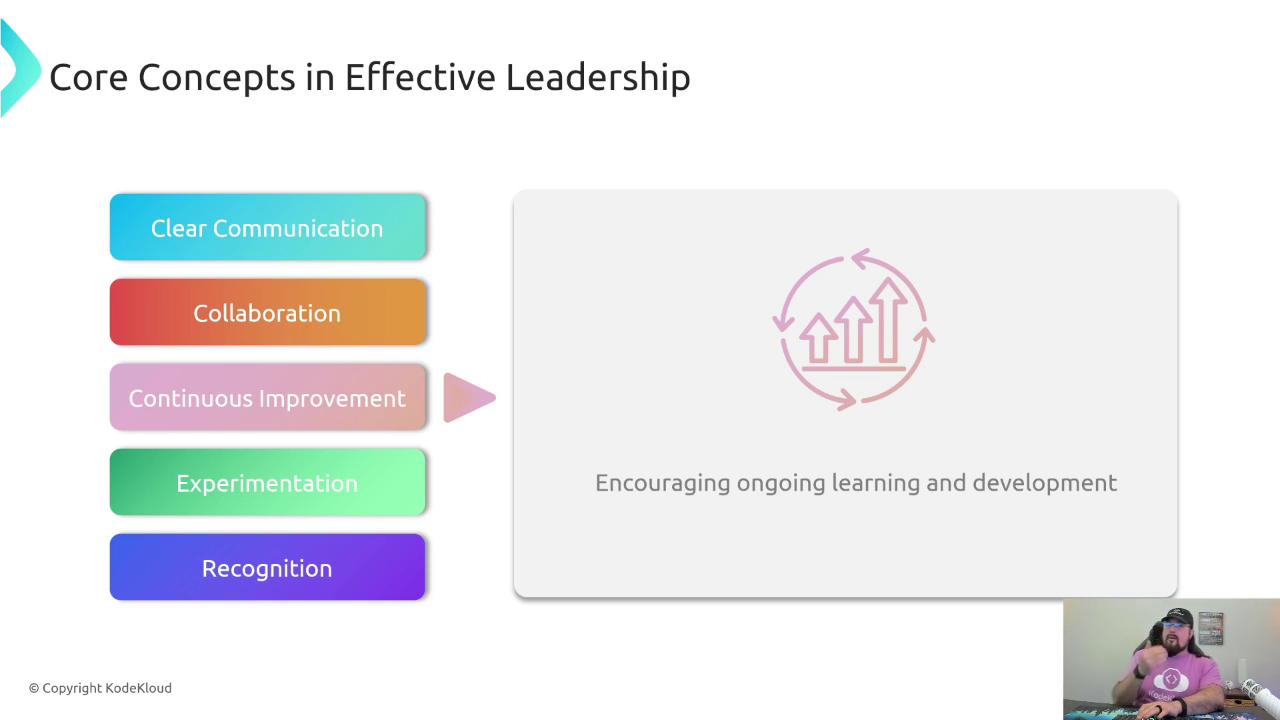
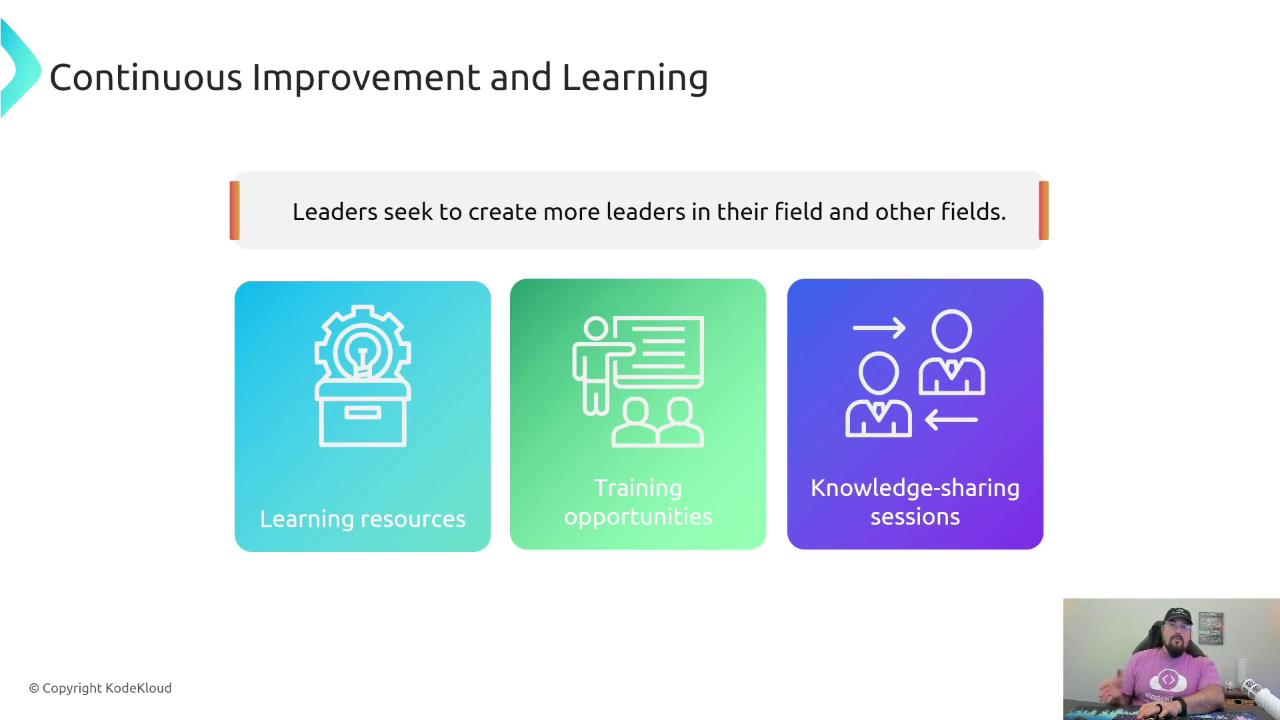
4. Experimentation
Innovation thrives in a safe-to-fail culture. Encourage teams to test new tools and approaches with controlled risk:
- Scope experiments and assess potential impact.
- Celebrate “failing forward”—each setback is a learning milestone.
- Focus on system improvements, not assigning individual blame.
Warning
Avoid blame in your retrospectives. Conduct blameless post-mortems and concentrate on root causes and process adjustments.
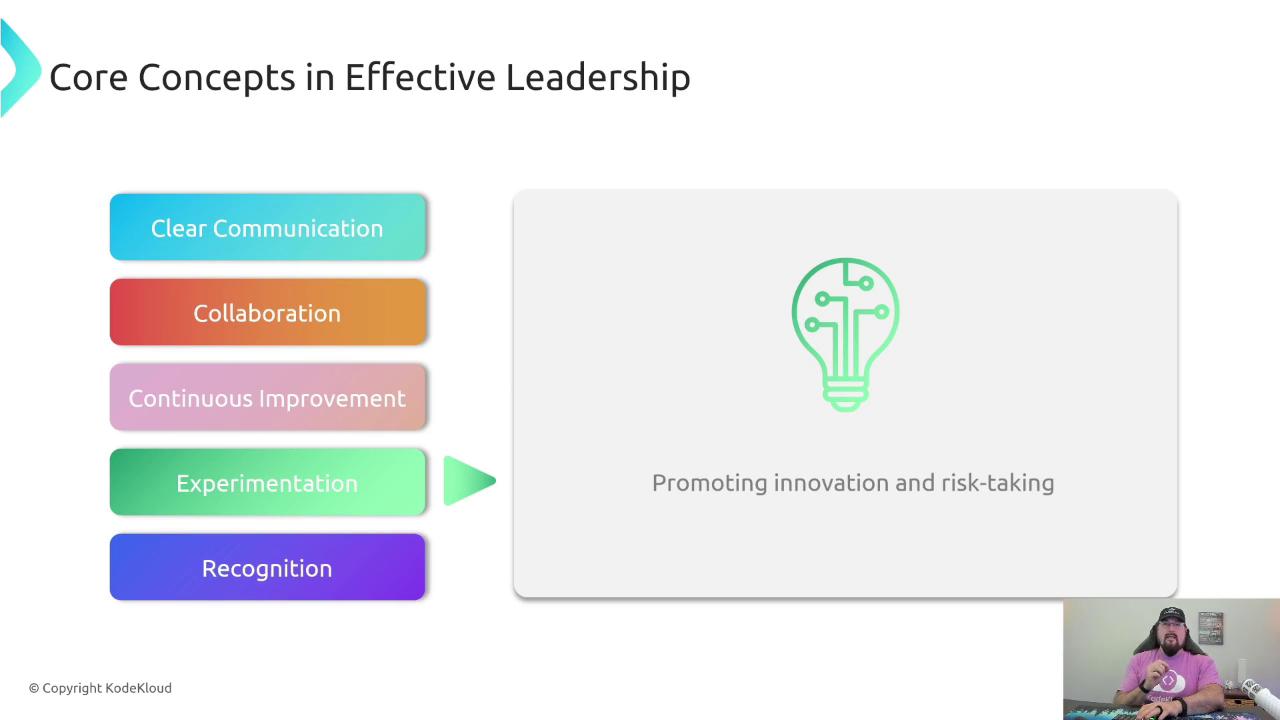
5. Recognition
Acknowledging effort fuels motivation and loyalty:
- Highlight team wins: solution launches, uptime milestones.
- Reward extraordinary effort: late-night firefights, creative problem solving.
- Celebrate behaviors that reflect company values.
Random, effort-based recognition often outperforms formal awards in driving engagement.
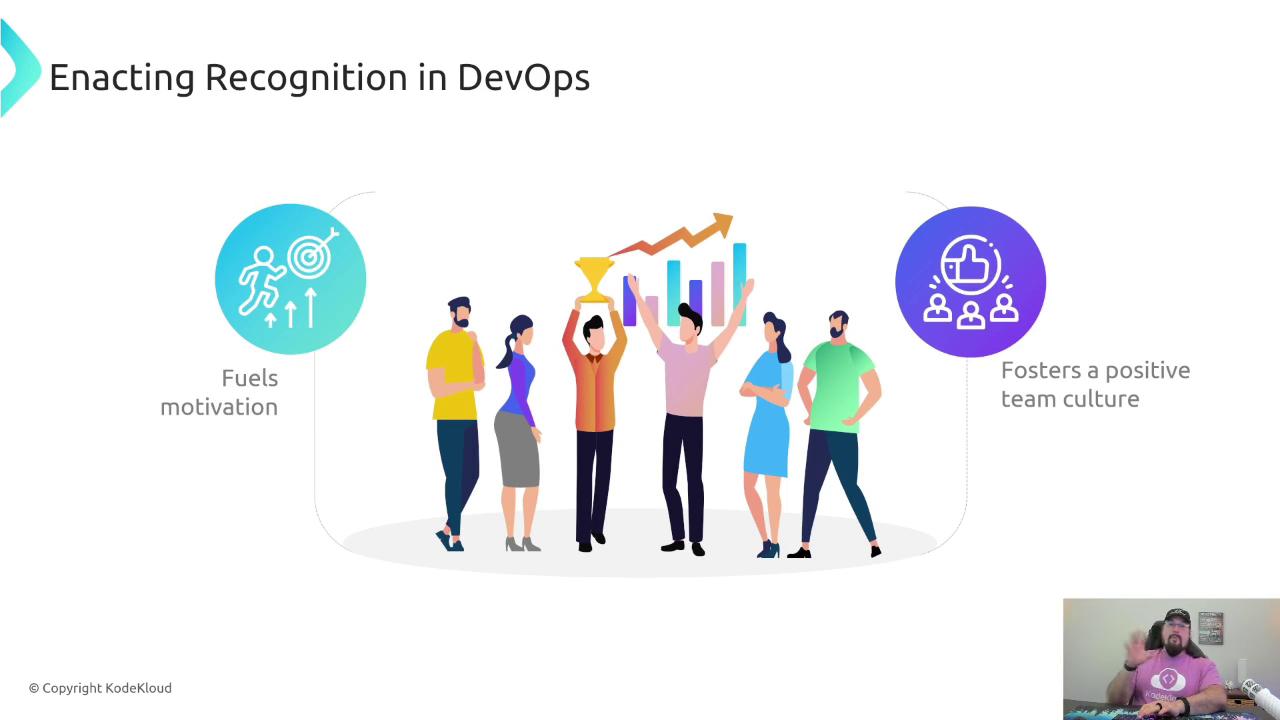
Empowering DevOps Teams
True DevOps leadership empowers teams to deliver value autonomously, consistently, and creatively. This requires trust, clear feedback loops, and the right level of authority.
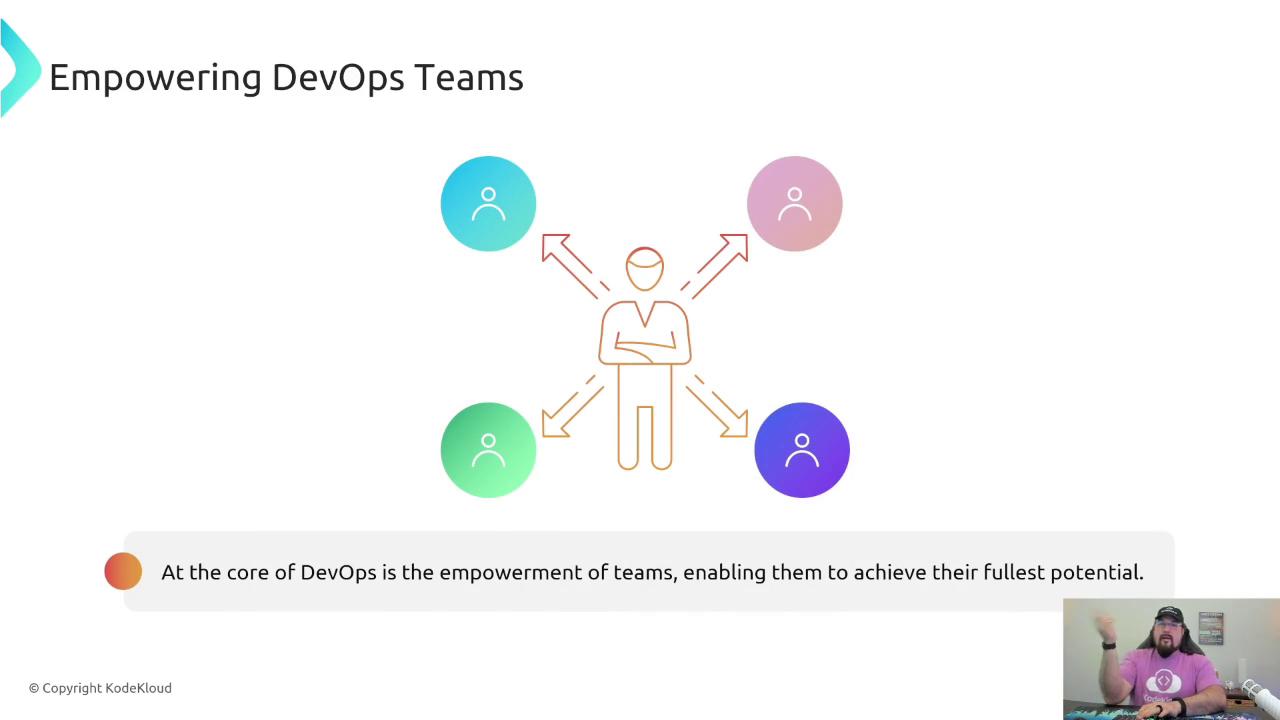
Key actions for empowerment:
- Grant decision-making authority and autonomy.
- Create meaningful work that aligns with individual strengths.
- Offer resources, encouragement, and timely feedback.
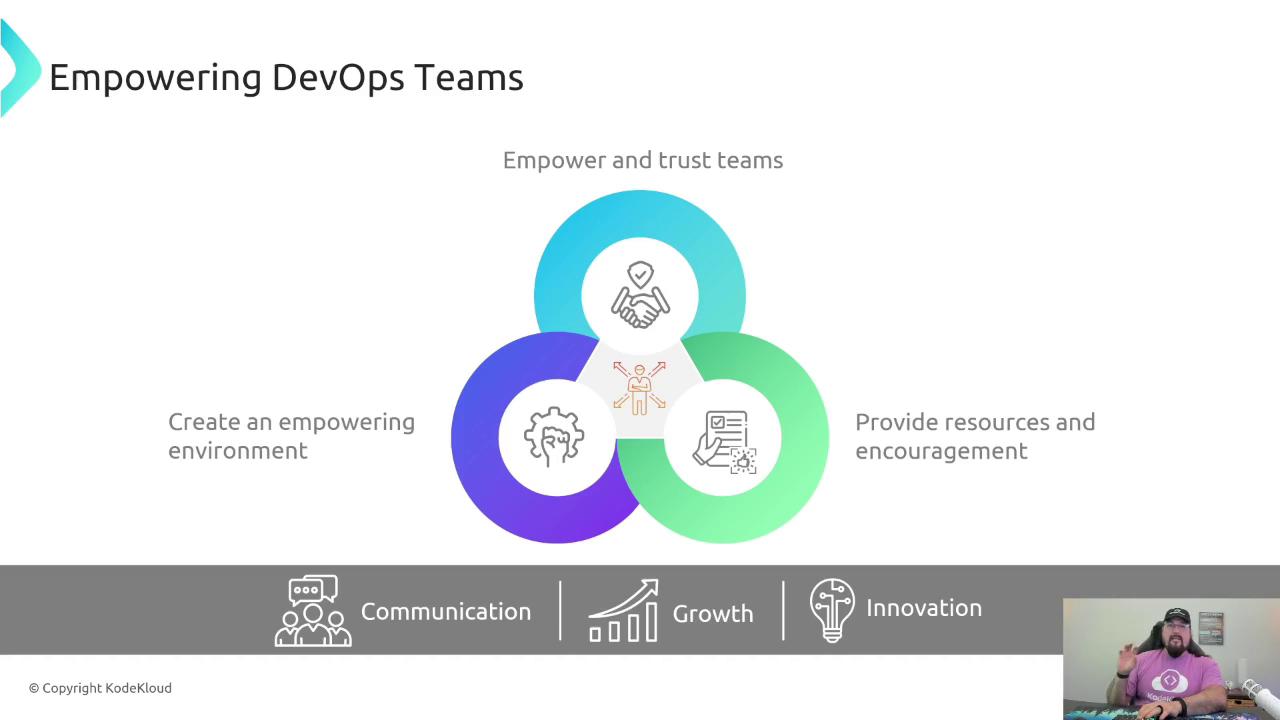
Summary
Leadership in DevOps isn’t a title—it’s a mindset. Whether you’re an individual contributor, team lead, or executive, champion these practices:
- Clear, transparent communication for alignment
- Collaboration across functional boundaries
- Continuous improvement and learning
- Experimentation with a safe-to-fail mindset
- Recognition of effort and values
By empowering teams with trust and support, you build resilient units that adapt to change, deliver value, and uphold your organization’s mission.
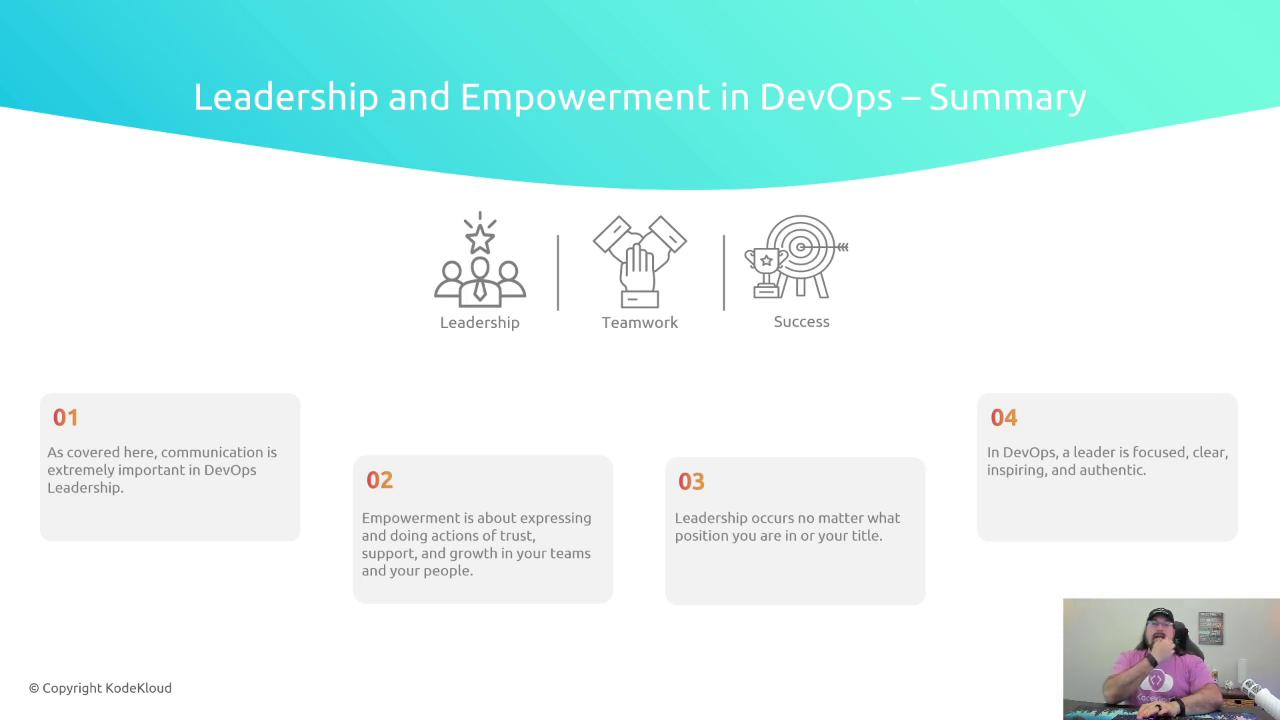
Thank you for reading. Stay tuned for the next lesson on essential non-technical skills for DevOps success.
Watch Video
Watch video content